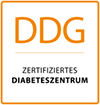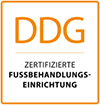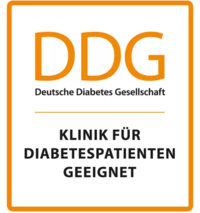Hospitals for Pancreatic Cancer Treatment in Germany
Each hospital in this list meets Booking Health’s strict international standards: at least 250 surgeries per year, ISO‑certified quality management, and documented survival outcomes. Our medical board then ranks the clinics by clinical expertise, technology, and patient‑satisfaction scores.

According to the reputable Focus magazine, the Helios Hospital Berlin-Buch ranks among the top medical facilities in Germany! The clinic is proud of its rich history, which dates back over 100 years, as well as the status of a maximum care medical center with exceptionally high success treatment rates. The medical institution is







Pancreatic Cancer Diagnostics
Price from:
0.00
Go to the program Pancreatic cancer treatment with whipple procedure (pancreaticoduodenectomy)
Price from:
34516.63
Go to the program Treatment of pancreatic cancer with chemotherapy and radiation therapy
Price from:
35095
Go to the program Diagnosis of pancreatic cancer with ERCP and biopsy under CT guidance
Price from:
12904.5
Go to the program Pancreatic cancer treatment with segmental pancreas resection
Price from:
34334.97
Go to the program Treatment of neuroendocrine tumor (NET) of the pancreas with chemotherapy
Price from:
8062.95
Go to the program Treatment of neuroendocrine tumor (NET) of the pancreas with Lutetium-177-DOTATATE
Price from:
16432.1
Go to the program Treatment of pancreatic cancer with chemotherapy
Price from:
8332.3
Go to the program Treatment of pancreatic cancer with stenosis via ERCP and bougienage
Price from:
19922.19
Go to the program 
According to the authoritative Focus magazine, the University Hospital Duesseldorf ranks among the top Germany hospitals! The hospital is an excellent example of a combination of high-quality health care, research and teaching activities. With more than 50,000 inpatients and about 300,000 outpatients every year, the hospital is 







Pancreatic Cancer Diagnostics
Price from:
0.00
Go to the program Treatment of pancreatic cancer with chemotherapy and radiation therapy
Price from:
32700.07
Go to the program Diagnosis of pancreatic cancer with ERCP and biopsy under CT guidance
Price from:
14913.16
Go to the program Treatment of neuroendocrine tumor (NET) of the pancreas with chemotherapy
Price from:
7568.1
Go to the program Treatment of neuroendocrine tumor (NET) of the pancreas with embolization or chemoembolization
Price from:
31177.25
Go to the program Treatment of neuroendocrine tumor (NET) of the pancreas with Lutetium-177-DOTATATE
Price from:
18064.91
Go to the program Treatment of pancreatic cancer with chemotherapy
Price from:
7854.15
Go to the program Treatment of pancreatic cancer with embolization or chemoembolization
Price from:
30941.3
Go to the program Treatment of pancreatic cancer with stenosis via ERCP and bougienage
Price from:
22212.72
Go to the program 
According to the Focus magazine, the University Hospital of Ludwig Maximilian University of Munich is regularly ranked among the best medical institutions in Germany! The hospital is the largest multidisciplinary medical facility, as well as a leading research and training center in Germany and Europe. The hospital is proud of i









Pancreatic Cancer Diagnostics
Price from:
0.00
Go to the program Pancreatic cancer treatment with whipple procedure (pancreaticoduodenectomy)
Price from:
41369.44
Go to the program Treatment of pancreatic cancer with chemotherapy and radiation therapy
Price from:
38871.15
Go to the program Diagnosis of pancreatic cancer with ERCP and biopsy under CT guidance
Price from:
14752.38
Go to the program Pancreatic cancer treatment with segmental pancreas resection
Price from:
41495.77
Go to the program Treatment of neuroendocrine tumor (NET) of the pancreas with chemotherapy
Price from:
8896.06
Go to the program Treatment of neuroendocrine tumor (NET) of the pancreas with embolization or chemoembolization
Price from:
31380.83
Go to the program Treatment of neuroendocrine tumor (NET) of the pancreas with Lutetium-177-DOTATATE
Price from:
18117.11
Go to the program Treatment of pancreatic cancer with chemotherapy
Price from:
9085.03
Go to the program Treatment of pancreatic cancer with embolization or chemoembolization
Price from:
31402.75
Go to the program Treatment of pancreatic cancer with stenosis via ERCP and bougienage
Price from:
22382.9
Go to the program 

